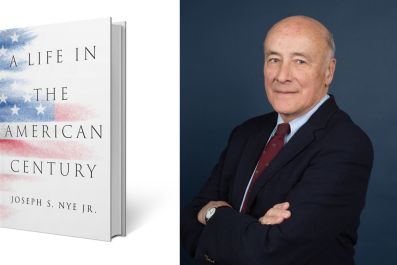"I'm from hearty German people," my morbidly obese mother used to say. "If the mule was sick, my ancestors would strap the yoke to their own backs to plow the field."
At first, I accepted my mother's heritage as the reason for her size, but as I grew older, I noticed Halloween and Easter candy disappeared overnight, Christmas cookies meant for gifts were never given, and special desserts baked for company never made it to the table.
Cakes, pies, ice cream—anything sweet—was her heroin. I'd find a sea of candy bar wrappers under the driver's seat in her car and spy her waking early to replace the box of cookies or carton of ice cream she'd eaten the night before.
As a child, I knew my love was dependent on not questioning the "crazy." Like the kid of every addict, you dance around the secrets. The dance we all did included a silent deal: We pretended not to notice, and she pretended, too.
In my teens, that choreography changed. My parents' divorce resulted in my father and younger brother moving 100 miles away, leaving me with my mother and her food addiction.

By high school, I started to call her out: "What happened to the brownies I made for the cheerleader bake sale?" I'd demand, annoyed, already knowing the answer.
I became the bad guy: A shallow brat with nothing more than cheerleading and silly bake sales on her mind. That became our shared narrative and caused untold friction between us. Especially when despite our shared genetics, my body wasn't turning out like hers.
"Wait until you have kids," she'd snap, before reminding me that, while she loved me, she didn't really like me.
I'll admit that in high school, I dedicated a ridiculous amount of time to popularity, using my peppy cheerleader image to pretend I'd been gifted a golden life. Mom disdained my chosen path to fit in, and I was too immature to understand that all she wanted and needed was the same: To feel accepted, and important.
We were more alike than I knew.
So as we'd revert to dancing "the pretend dance" that she didn't have any issues, and I was a skin-deep Homecoming Queen wannabe, love showed itself only in spurts.
One evening, my mother returned from the grocery store where I'd asked her to pick up a roll of pictures I'd taken with my friends. I unloaded everything but didn't see any pictures.
Looking pale, Mom motioned me into the car. We drove to a nearby construction site, where she pointed to a dumpster. I climbed in and there, near the top, was a grocery bag with my pictures, along with two empty family-sized boxes of donuts.
I flashed on the many times she'd run out for an unnecessary quart of milk, so much suddenly making sense.
Mom could've let what happened to my pictures remain a mystery. Instead, knowing how much they meant to me, she allowed me to see her truth.
Slinking back into the car, I returned her love by keeping my mouth shut. From that point on I saw her as someone who needed help, not judgment.
While we didn't have words for it then, mom suffered from Binge Eating Disorder (BED), which wasn't established as a psychiatric illness until 2013. While I'm sad that it took so long for BED to be recognized, I am hopeful that the 2.8 million Americans who currently struggle with this eating disorder can get help—using drugs like Ozempic—that were unavailable in my mother's lifetime.
Showing that weight loss isn't simply a "mind-over-matter" lack of self-discipline to eat less, people prescribed semaglutide drugs like Ozempic report a never-before-felt relief from the intense cravings, insatiable hunger, and constant "food-noise" that plagued my mother, making them a promising treatment for BED.
I have no doubt that these drugs would've made a huge difference to my mom's mental health—and to our relationship.

In 2007, at 64, mom was admitted to home hospice with uterine cancer. I was 39, a working mother of two young kids, only able to visit on weekends. With metastasis filling her lungs and leaving her breathless, she could no longer climb stairs, so mom's hospital bed was in the family room.
At first, she was giddy over her fast weight loss. She even asked me to take her to Weight Watchers so she could receive a 50lbs weight loss charm to add to her keyring.
"Mom, you're losing weight because you're sick. You don't have enough breath to go to Weight Watchers."
I regret not taking her to honor those lost pounds. Celebrating the number on the scale turned out to be her last wish.
By the next visit, she couldn't get out of bed. Soon after that, she died.
What I wouldn't give to turn back the clock for my mother, to have her relive her adult life with Ozempic. The medical effects would be secondary to the profound difference it would've made on her internal struggles and subsequent relationships.
If mom had lived a life where her craving for sweets didn't consume her, where she felt full after eating, where she didn't calculate every clandestine binge and hide her shameful secret, all while pretending that being obese didn't matter to her, she might've felt good enough to love and accept herself—and I would've had a mother who not only loved me, but liked me too.
Sherrie Page Guyer has been a registered nurse for over 30 years. She is a writer on health topics and is pursuing a Doctor of Nursing Practice degree at the University of Virginia.
All views expressed are the author's own.
Do you have a unique experience or personal story to share? Email the My Turn team at myturn@newsweek.com.







